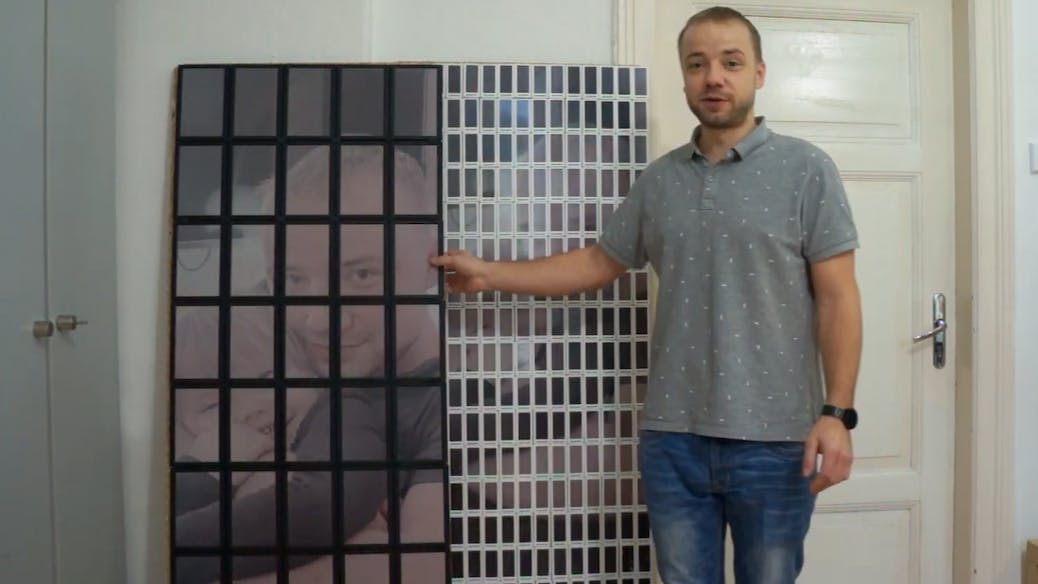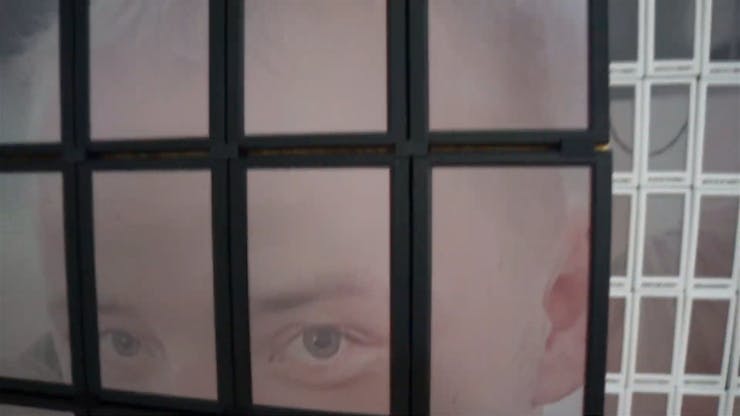Person-Size ePaper Wall Art Using E Ink Price Tags
2023-01-29 / News / 15513 Sees / 0 Comments
One source of ePaper or E Ink displays is retired retail price tags. These devices have a microcontroller connected to an NFC antenna, Zigbee radio, or both. Hardware hackers love finding these tags sold in a bundle to repurpose for other projects. One example comes from German engineer Aaron Christophel: a wall-art display made of E Ink price tags!
Christophel built an art display with 300 2.9" ePaper price tags in the past. Each tag had a resolution of 296 x 128 pixels. One downside to this display is that the bezels are relatively large, making it difficult to our eyes to resolve an image. Another limitation is the limited colors. However, this limitation is better than it seems. Even though these displays only have three colors: black-white-red (BWR), it is possible to get more variations using dithering.
Driving each of these tags is an application-specific microcontroller made by a company called SOLUM. These Zigbee-enabled controllers contain an 8051 core with some flash memory and RAM. Since these are no longer being used as price tags, Christophel developed custom firmware (and flasher) for the ZBS243 (or SEM9110) chips.

The latest ePaper wall iteration now uses 45 7.4" BWR displays. The bezel is still visible, but the ratio of active pixels to the bezel is much improved. These new displays support 640 x 384 pixels each. Christophel found these price tags used an 88MZ100 branded microcontroller. These chips are Arm Cortex-M3-based, also with a Zigbee radio. Sadly, these 7.4" displays are much harder to find than the smaller 2.9" types.
Christophel created this E Ink wall art with the help of other projects. First is Daniel Kucera ePaper Station, which communicates with the individual displays from a PC. And the other project is a highly detailed breakdown of several ePaper price tags from Dmitry Gringberg. (Well worth the read if you enjoy reverse engineering stories!)
Flashing the 7.4" screens only requires a PC with a USB-to-UART adapter. The manufacturer kindly provided pads on the back for reprogramming. Christophel provided the custom firmware in this GitHub repository.
More about“eink,eink display,signage,E Ink wall art,”'s article.
The original address《Person-Size ePaper Wall Art Using E Ink Price Tags》